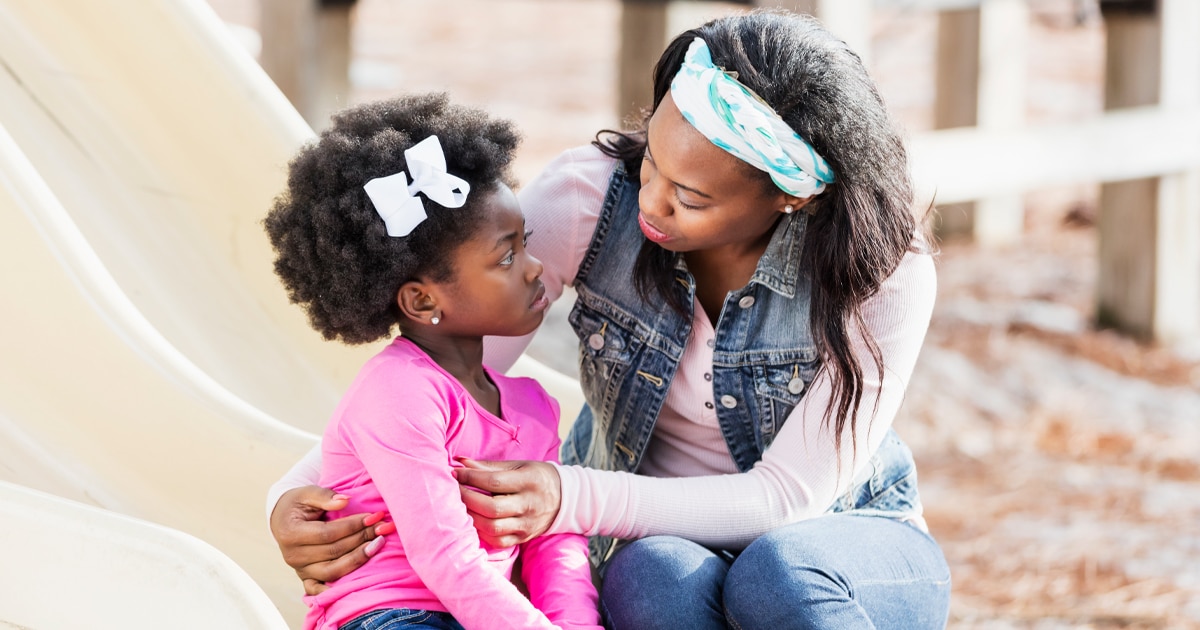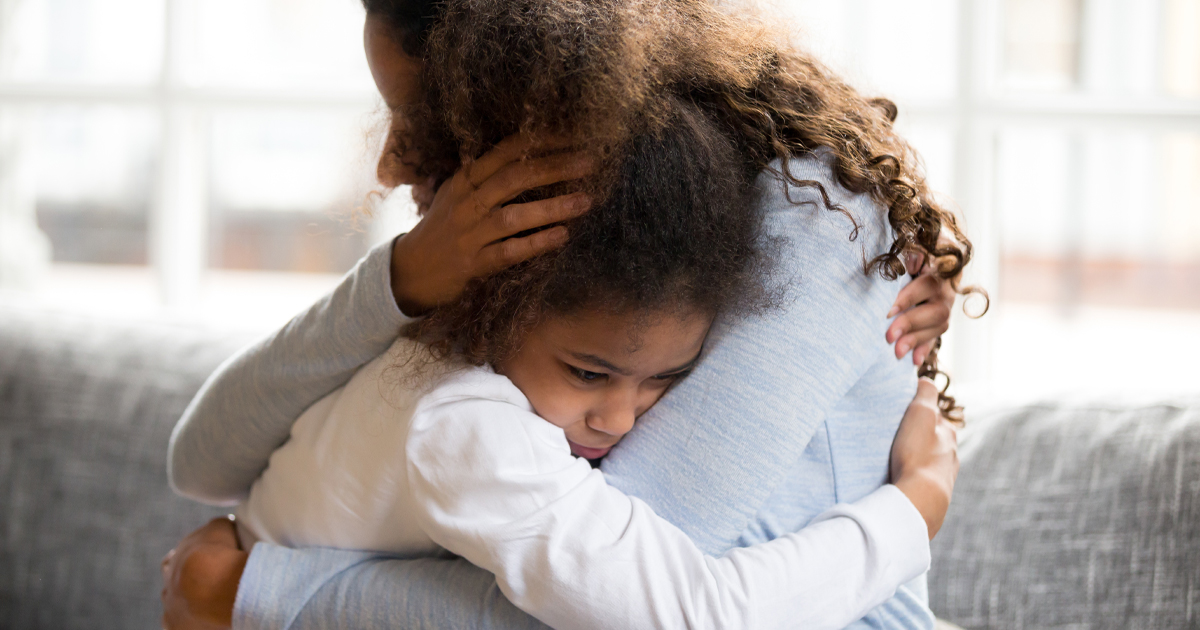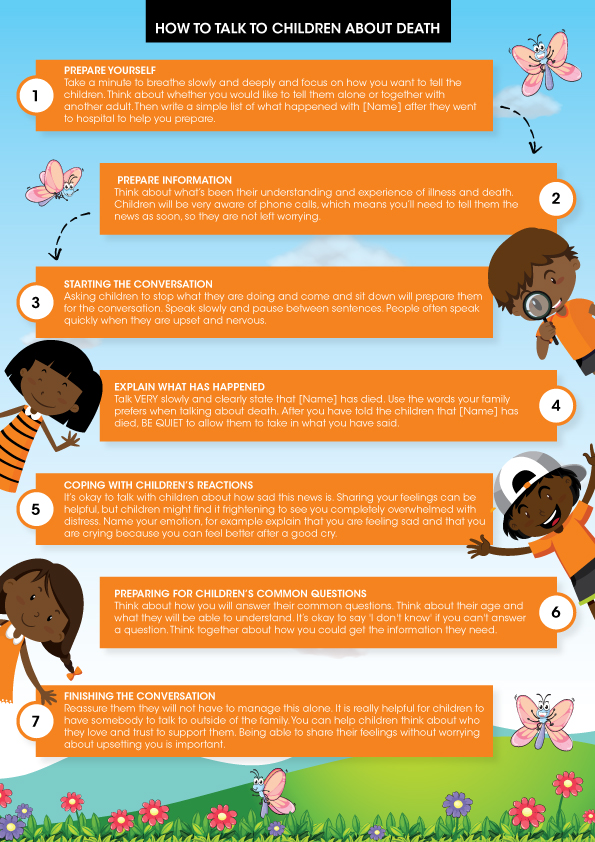How to talk to children about grief

Losing a loved one isn’t easy for anyone and for children it can be harder. Telling them the sad news and supporting them are big challenges for parents. Here are some points and resources that may help.
Children are aware of death from early on – in nature, in stories, movies and in talking on the playground. But experiencing it personally is different and can be confusing for kids at any age. You know you can’t protect your child from harsh realities but you can help them cope and make them feel safe. How you handle their grief now can ensure they are equipped to deal with loss themselves throughout their life.
A familiar world makes children feel safe and in control. Someone or something disappearing from that world forever is a big disruption. How children grieve, depends on many things such as their age and personality. But here are steps recommended by experts to help you tell your child about a loss and helping them work through it.
BE HONEST
Admit that you don’t know why someone had to die. You might be tempted to avoid the word death, but saying something like “Gogo went to sleep forever” could cause anxiety. The child might then associate sleep with death and wonder if they’ll be next not to wake up. For a younger child, “We lost Mkhulu last night” could mean he can be found again.
KEEP IT SIMPLE
School-age children will understand death is permanent, but still have questions. You can’t answer everything – just be available. Don’t give more details than they can take in at their age. Don’t leave out that you are also feeling sad and that it’s okay for people to mourn as long as they need to. With the constant messages about safe behaviour during the pandemic, children might feel it’s their fault if some dies of Covid. They have to understand that it’s nobody’s fault and certainly not theirs.
Kids won’t be able to take it all in at once. Even if you may explain clearly that Grandma has died, your child might ask a few days later when she’s coming back. Be patient.
SHOW YOUR FEELINGS
Grief has to be expressed, so having a cry and a hug together is a way of sharing your feelings more than words can. Showing emotion and explaining your feelings help prepare children for future sad events that are part of every life.

BE SENSITIVE TO PERSONALITIES
Some kids will want to talk, others might prefer to take comfort in their usual routines as if nothing has changed. Look out for unusual behaviour that could mean the child is struggling. A child who has lost a parent might regress and become like a baby for a while. It’s a way of seeking comfort and escaping until they can face more of the reality.
YOUR FAITH
You’ll want to mention your family’s beliefs about death. Just know that a child can misunderstand. Telling them to cheer up because “Granny’s gone to heaven to be with God” can be hurtful and damaging to their faith development. Anger is bound up with grief and children might feel angry with God. They need to know that is fine, too.
PREPARING FOR LOSS
If someone is dying, it’s not helpful to keep this from children. They will sense something is very wrong. Admit that someone is ill and might die, though you don’t know when. Dying is part of life and this is an opportunity for children to see how we care for people as they come to the end of their life.
FUNERALS
Funerals are restricted during the pandemic. Whether you attend or not is a personal choice. For some children, a funeral can bring closure. Others are not ready for the experience. Never force children to attend a funeral. If they want to go, tell them what will happen and let them decide if they want to go. Take care to show that you accept their choice.
MEMORIES
Remembering good things about someone who died is positive and helpful. If you want to help a child remember, these ideas may help:
- Share happy stories about the person who has died and talk about them.
- Look through old photographs or videos.
- Make a scrapbook together about the person who has died.
- Start a journal of memories that can be added to by anyone. This may help children who have lost someone at a young age to remember the person as they grow up.
- Involve the child in choosing pictures for a social media memorial page.

MORE SUPPORT AND ADVICE
The Hospice Palliative Care Association of South Africa (HPCA) offers bereavement support for children. Call the head office on 021 531 2094 or 021 531 0277, email hpca@iafrica.com or visit www.hospicepalliativecaresa.co.za to find a hospice.
Read how children grieve and how to support them by age group: https://www.kidshealth.org.nz/bereavement-reactions-children-young-people-age-group
Read how to support a child through Covid 19 losses: https://www.unicef.org/coronavirus/how-parents-can-support-their-child-through-covid-19-losses

Download your FREE guide here to make sure you’re always ready to answer difficult questions about loss.
![]() JET CLUB HELPLINES
JET CLUB HELPLINES
For free advice on any aspect of raising children, Jet Club members can call our helpline
HEALTH, TEEN & BABY HELPLINE
SA & Namibia
0800 00 45 45
Botswana, Lesotho & Swaziland
+2711 991 8258
Article sources: https://www.thelancet.com, https://www.psych.ox.ac.uk, https://www.npr.org, https://childmind.org.
Related articles

Latest Jet club magazine
We’ve got the latest trends, exciting prizes and exclusive savings just for you!
Jet Club will not pass your details to anyone else. By clicking the subscribe button you confirm you have read and agree to the Jet Club Terms and conditions and Jet Club Privacy Statement.
Subscribe

